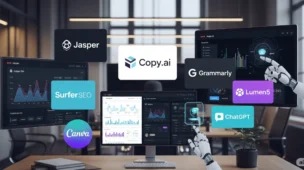Reading time: 4 minutes
Artificial Intelligence (AI) is no longer just a futuristic concept or a buzzword used in tech circles. It’s now at the core of how businesses understand, interact with, and sell to their audiences online. In the realm of digital marketing, AI has opened doors to new levels of efficiency, personalization, and scalability that were previously unimaginable.
The Role of AI in Modern Marketing
AI in digital marketing refers to the use of machine learning, big data, and other intelligent technologies to automate tasks, analyze customer behavior, and optimize marketing strategies. From chatbots to content generation, AI is reshaping the entire marketing landscape.
Companies now use AI to gain a competitive edge through data-driven decisions. Instead of relying on intuition or manual analysis, marketers can access real-time insights to adapt campaigns and personalize customer experiences like never before.
Enhancing Customer Experience
One of the biggest impacts of AI in digital marketing is the improved customer experience. With AI, marketers can tailor messages, offers, and content to individual users based on their behavior, preferences, and demographics.
For example, platforms like Amazon and Netflix use AI-powered recommendation engines that analyze viewing or purchase history to suggest personalized content. This creates a more engaging user experience that boosts satisfaction and conversion rates.
Automation and Efficiency
Marketing automation tools powered by AI can perform repetitive tasks such as email segmentation, social media scheduling, and campaign management. This not only saves time but also minimizes human error.
With predictive analytics, AI can forecast which leads are more likely to convert, allowing marketers to focus their efforts where they matter most. Tools like HubSpot, Marketo, and Salesforce are integrating AI to enhance lead scoring and campaign optimization.
Smarter Content Creation and Optimization
AI can help generate content ideas, suggest keywords, and even write entire articles. Platforms like Jasper and Copy.ai are widely used by marketers to produce copy for ads, blogs, and product descriptions.
In SEO, AI tools like Surfer SEO and Clearscope analyze competitors and search trends to optimize articles, improving visibility on search engines. AI can also help A/B test headlines, CTAs, and layouts to determine what resonates best with the audience.
Real-Time Analytics and Decision Making
Traditional marketing relied heavily on post-campaign analysis. AI changes that by providing real-time data and insights, allowing marketers to make quick adjustments.
Dashboards powered by AI can track user interactions, conversion rates, and campaign performance as they happen. This agility allows for more responsive and data-backed marketing decisions.
Personalized Advertising
AI enables hyper-personalized ad targeting based on user behavior, location, search history, and other data points. Google Ads and Facebook Ads use AI algorithms to deliver the most relevant ads to users.
This targeted approach not only improves click-through and conversion rates but also optimizes ad spend by reducing waste on uninterested audiences.
AI in Email Marketing
Email marketing is one of the areas where AI has made significant strides. AI tools can analyze user engagement to optimize send times, frequency, and content for individual subscribers.
Personalized email campaigns driven by AI often result in higher open and click rates. Marketers can also use AI to segment audiences more accurately, ensuring the right message reaches the right person.
Predictive Customer Behavior
AI can analyze large datasets to identify patterns and predict future customer behavior. This helps marketers anticipate needs, personalize offers, and proactively solve problems.
For instance, predictive analytics can indicate when a customer is likely to churn, giving businesses the opportunity to re-engage them with targeted campaigns or offers.
Chatbots and Conversational Marketing
AI-powered chatbots provide instant customer support, answer frequently asked questions, and guide users through the sales funnel 24/7. They can handle multiple conversations simultaneously, improving efficiency and user satisfaction.
Conversational marketing through chatbots creates a more interactive and engaging experience, reducing friction and boosting conversions.
Ethical Considerations
While AI brings efficiency and effectiveness, it also raises ethical questions around data privacy and transparency. Marketers must ensure they are using data responsibly and complying with regulations like GDPR and CCPA.
Transparency about how AI is used in marketing communications is crucial to maintaining consumer trust.
Preparing for an AI-Driven Marketing Future
As AI continues to evolve, marketers must stay informed and adapt to new tools and practices. Upskilling in AI technologies and understanding how to integrate them into marketing strategies is essential for long-term success.
Businesses that embrace AI not only improve performance but also position themselves as innovators in their industry.
Final Thoughts: Embrace the Transformation
AI is not here to replace marketers but to empower them. By automating routine tasks, delivering deeper insights, and enabling hyper-personalization, AI is transforming how digital marketing works from the ground up.
Marketers who understand and leverage AI will be better equipped to create impactful, efficient, and customer-centric campaigns that stand out in a competitive digital world.




